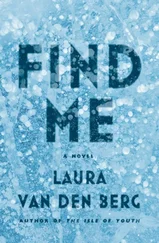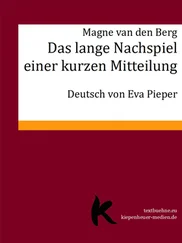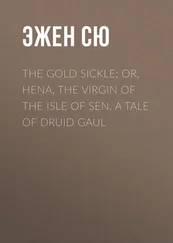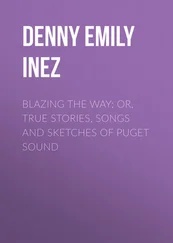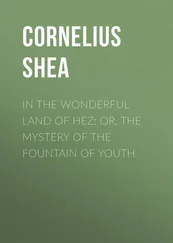They watch people come and go from the bank. They consider the flow of traffic on the street. They send Pinky in to pretend he’s filling out a deposit slip. In Central Park, an American flag snaps in the breeze. A church bell calls out the hour. The bank is unassuming, just a brick building with tinted windows. When Pinky returns to the car, he gives a report on the interior layout, the number of tellers, and the points of exit and entry. According to him, there are only two tellers and they’re both fat and slow. Dana watches a young woman emerge from the bank; a white envelope is tucked under her arm and she’s holding a little boy by the hand. It startles Dana to think that the course of your life could depend on when you decide to cash a check or buy a roll of quarters.
“This one is going to be a breeze,” she says.
“Where’s the fun in easy?” Cora replies. She turns on the radio and surfs until she finds the news. Tornadoes are in the forecast. Last night one of the Go-Go Girls was spotted at a nightclub in Malibu. There was a big chase with the police. Naturally, she escaped.
“A nightclub!” Cora slaps the steering wheel. “She was probably sitting in some guy’s lap. She was probably drinking champagne.”
“Champagne gives me a headache,” Jackie says from the back.
“That’s because you’ve never had the good stuff,” Cora tells her.
“How would you know what the good stuff is?” Jackie replies.
At the motel, they clean their guns. Except for Pinky, who locks himself in the bathroom. They can hear him banging around in there. It sounds like he’s acquired a hammer and a drill. Dana doesn’t know where he could have gotten those things.
“He really wants to finish that robot before we leave town,” she says.
“What if someone has to pee? Or take a shower?” Cora asks. “What then?”
“Your brother is so weird,” Jackie says.
Their guns are old Smith & Wesson revolvers. They wipe them down with the white face towels they found in the motel room. Afterward they take out their gorilla masks and line them up on a bed. Black synthetic fur surrounds the rubber faces. The mouths are open, showing off plump pink tongues and fangs. They put the masks on. They pick up their guns and point them at each other. They aren’t loaded, so they pull the triggers and listen to the hollow click. Bang , Dana whispers into the sweet-smelling rubber. She can see a bullet flying from the chamber and pinging her right in the forehead. She can see it burrowing into her brain. When people get shot in the movies, they flail and scream and stagger. Sometimes they even pretend to be dead and then come back to life. But that’s not what it would be like at all, Dana thinks. She imagines it’s just like turning out a light.
2.
In Elijah, they lived on a farm. The property held two gray houses, a chicken coop, and a dilapidated barn. The metal skeletons of cars rusted in the front yard. The barn was filled with dust and moldy straw. On the edge of the property, a small cross made from sticks had been pushed into the ground. It was a grave, but Dana never knew who it belonged to.
The mothers — her and Pinky’s, Cora and Jackie’s — were both the same: long-faced women scrubbed free of dissent and desire. Dana never heard either of them make a joke or sing. One of her earliest prayers was asking God to not let her end up like them. Cora and Jackie’s father was gone. Years ago, he had driven away in the middle of the night. Dana remembered him being like lightning cracking in the sky, quick and mean. Her own father was stern but quiet, the kind who didn’t need to raise his voice to incite fear. Once, during a homeschooling lesson, she learned 95 percent of the ocean was unexplored and thought her father must be like that, too: filled with dark, unseen caverns. Sometimes she longed for a father that popped and exploded like Cora and Jackie’s had. At least then you knew what he was capable of.
Little was actually farmed on the farm. Her father didn’t believe in working for pay. That was the government’s system, he said. They were sovereign citizens. They ate homemade bread, snap beans that grew on vines, peppers, collards, and venison; they drank water that came from a well. They had chickens and a milk cow and a white goat. By the time the girls were seven, they knew how to handle a gun. They could hit the center of a bull’s-eye. They could shatter the clay pigeons Dana’s father tossed into the air. Every Sunday they had target practice because that was God’s day and He would want them to be prepared. Cora always had great aim. Pinky never liked the shooting. He got his nickname from the way he flushed whenever he fired. He didn’t like the weight of a gun in his hands. He didn’t like the noise. He knew better than to say these things in front of his father, of course, but he told Dana when they were alone. She would lick her index finger and wipe dirt from his face and tell him that he would get used to it in time.
Once, when Dana was thirteen and Pinky was eight, their father took them turkey hunting. They were instructed to climb a tree and stay put until he called. From the branches of a chestnut oak, they watched him crouch in the tall grass and lure the turkey with a whistle. The bird moved slowly through the woods. Fall leaves crunched under its scaly gray feet. When it appeared, its tail feathers were spread into a beautiful rust-colored fan. Dana thought he looked big and regal, and for the first time the gap between what she knew and what the animal knew seemed cruel. It took only one bullet for the turkey to fall, heavy and silent as a sack of grain. Pinky put his hands over his eyes. Dana rubbed his back. When their father called, she hesitated. She pretended they were invisible in the tree. He kept calling, but his voice never sparked with anger. It wasn’t patience, though. Dana understood that it was something else. When they finally went to him, he rolled the turkey over and showed where the bullet had gone in. He made them kneel beside the bird and touch the hole. It was gummy and warm. He told them fear of death was their greatest human weakness. He pulled a brown feather, the end tipped with white, from the turkey’s tail and stuck it in Dana’s hair.
The winter the girls turned eighteen, everything changed. A notice came in the mail. No one had paid taxes on the farm in decades and now the government was saying it owned the land. Her father tore up the first notice, because he didn’t believe in taxes, but they kept coming. Dana saw the envelopes stamped with URGENT that he brought home from the P.O. Soon they had just sixty days to pay. That was when their training became serious. They had target practice daily. They had drills where they would run along the perimeter of the property, rifles in hand. Even Pinky had to come. He always lagged behind the girls. Dana worried about him slipping on the ice and shooting himself in the foot. They would go out bundled in parkas and leather gloves and hunting caps, their breath making white ghosts in the air. After the first hour her arms would burn from the weight of the gun, but she would keep going. They were given a pair of binoculars and told to look out for strangers. Every night their father waited up in the kitchen for something to happen, for someone to come. Every night they recited a prayer that was meant for the eve of battle: His days are as a shadow that passeth away / touch the mountains, and they shall smoke / Cast forth lightning, and scatter them . During a snowstorm, Dana said she didn’t see how anyone from the government could find them in this weather, and her father pointed out that snowfall could give the enemy perfect cover. That night, he asked her to wait up with him. He kept opening the front door and looking outside. Snow gusted into the house and padded the hallway with white. Flecks of ice got stuck in his dark eyebrows and hair. He showed her a pamphlet newspaper called The Embassy of Heaven , which had a Bible quote on the cover: “Do not suppose that I have come to bring peace to the earth.” He said he had been writing to the newspaper and asking for help.
Читать дальше

